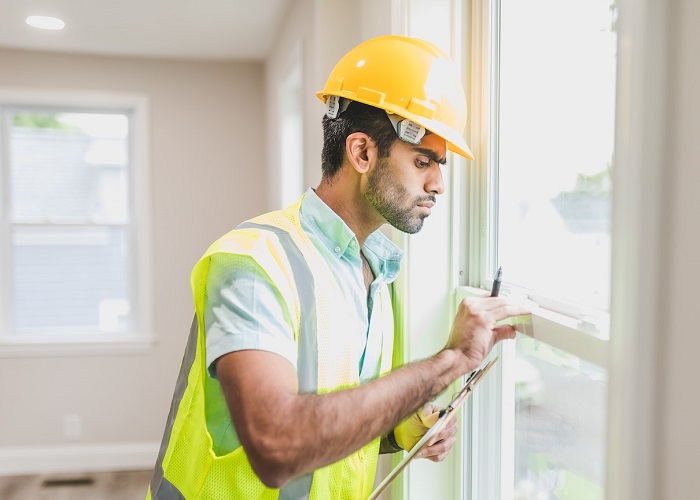You’re not alone if you want to stay safe on the job. Workplace safety is a top concern for employees and employers alike, and with good reason. From slips and falls to proper posture, there are a variety of hazards that can pose a risk to your well-being. These tips will help you stay healthy, happy, and unscathed, no matter your industry or job type.
1. Proper Lifting Techniques
If you’ve ever experienced back pain or muscle strain from lifting something heavy at work, you know how important proper lifting techniques can be.
- Use your legs, not your back – Bend at the knees and use your leg muscles to lift the object, not your back. This will help avoid strains and injuries.
- Avoid twisting or jerking motions – Keep your movements smooth and controlled. Avoid jerking the object, which can put undue stress on your back.
- Request assistance for heavy items – If the object is too heavy to lift, don’t hesitate to ask for help. It’s better to be safe than sorry! Additionally, using pallets from a reputable pallet supplier in Toronto can make moving heavy items around the warehouse easier.
- Proper use of heavy equipment – With good use of the stand-up reach truck rear post in Toronto, you can significantly reduce the risk of accidents and injuries in your warehouse.
2. Proper Posture and Ergonomics
Do you ever find yourself hunching over your desk, peering at your computer screen like a curious ostrich? Not only is this bad for your posture, but it can also lead to eyestrain, neck pain, and other repetitive motion injuries. Here are some tips to keep in mind to avoid it:
- Maintain a neutral spine – Your spine should be in a natural, neutral position when sitting or standing. Avoid slouching or arching your back, which can put undue stress on your spine.
- Adjust workstation ergonomics as needed – Your desk, chair, and computer should all be adjusted to accommodate your posture. Make sure your chair is at the right height, your keyboard is at the right angle, and your monitor is at eye level.
- Take frequent breaks to stretch and move around – Sitting in one position for too long can cause stiffness and pain. Take breaks to stand up, stretch, and move around. Maybe even do a little dance to your favourite song.
3. Prevention of Slips, Trips, and Falls
Ah, the dreaded slip, trip, or fall. These accidents can be embarrassing and painful, whether from a wet surface or an uneven floor.
- Wear slip-resistant shoes – If your job requires a lot of walking or standing, invest in slip-resistant shoes to help keep you stable on slippery surfaces.
- Clean up spills immediately – If you spill something on the floor, clean it immediately. Don’t wait for someone else to do it. You’ll save yourself and your coworkers a lot of grief.
- Keep walkways clear – Avoid leaving boxes, cords, or other objects in walkways. Keep them clear to avoid tripping hazards.
- Pay attention to where you’re going – This may seem obvious, but it’s easy to get distracted and ignore where you’re walking. Stay aware of your surroundings and be mindful of any hazards.
4. Personal Protective Equipment (PPE)
If your job requires personal protective equipment (PPE), it’s important to take it seriously. Whether you don a hard hat, safety goggles, or gloves, ensure you’re using the right equipment for the job and that it fits properly. You can avoid workplace hazards with the right personal protective equipment.
- Eye protection – Safety glasses or goggles can help protect your eyes from flying debris, dust, or chemicals.
- Head protection – Hard hats can protect your head from falling objects or head injuries.
- Respiratory protection – Masks or respirators can help filter out harmful airborne particles or chemicals.
- Hand protection – Gloves can protect your hands from cuts, chemicals, or other hazards.
5. Fire Safety
Fire safety is a critical aspect of workplace safety. Fires can break out at any time, and it’s essential to be prepared and take preventative measures to avoid disaster. Here are some helpful tips to keep in mind
- Know your exits – Familiarize yourself with the emergency exits in your workplace. Make sure they’re not blocked and can be easily accessed.
- Fire safety and WHMIS training – Ensure all employees receive proper WHMIS training in Barrie.
- Check your smoke alarms – Make sure smoke alarms are installed in the workplace and are working properly. Test them regularly to ensure they’re functioning.
- Keep fire extinguishers nearby – Know where and how to use them. Make sure they’re easily accessible and not expired.
Be cautious with electrical equipment – Don’t overload outlets or use damaged cords. Keep flammable materials away from electrical equipment.

